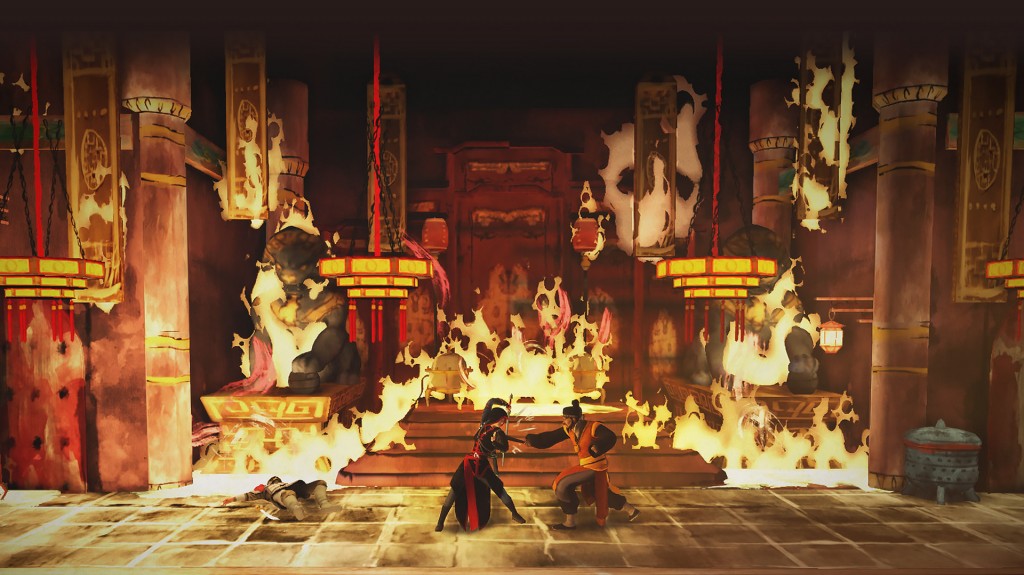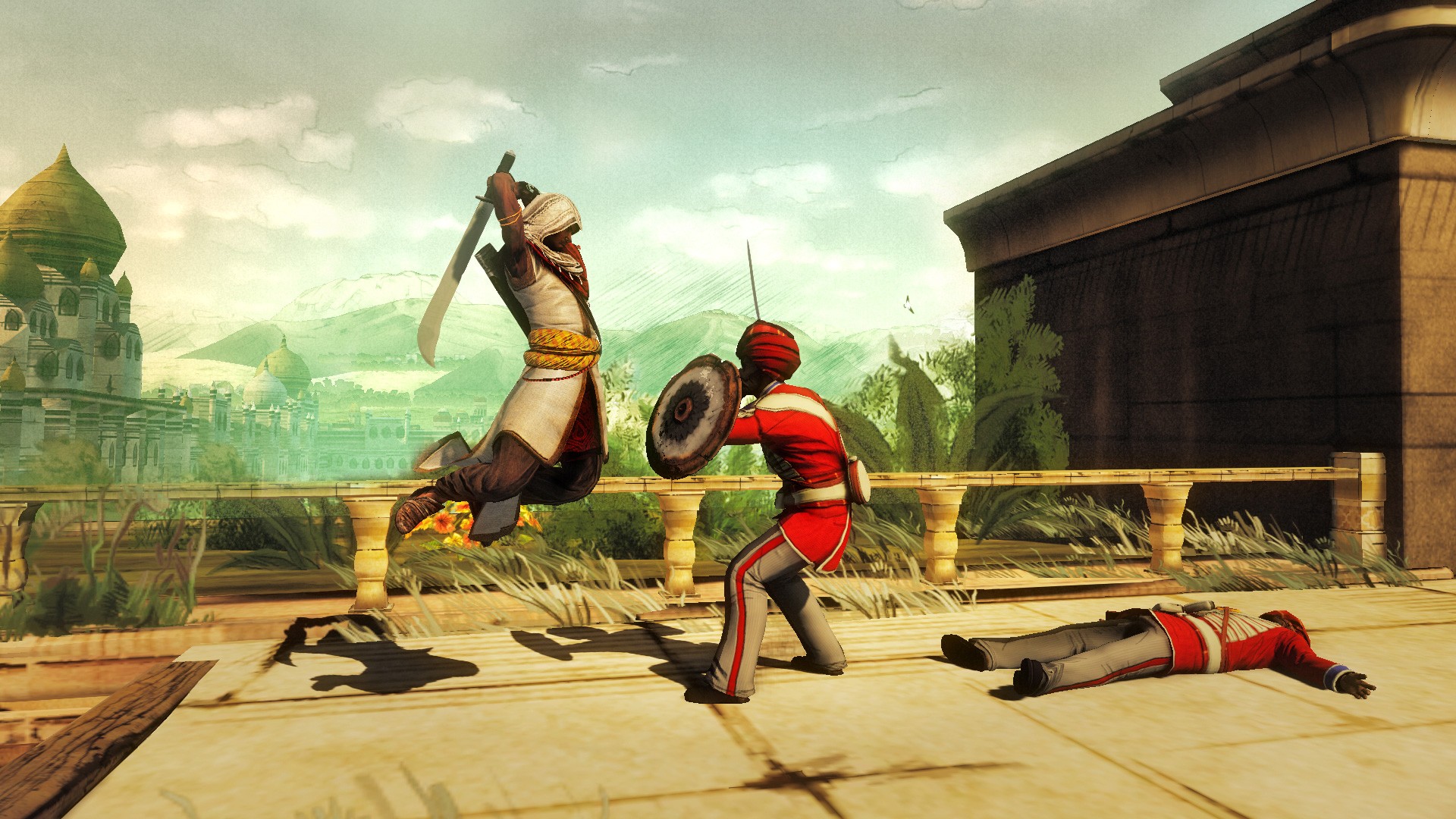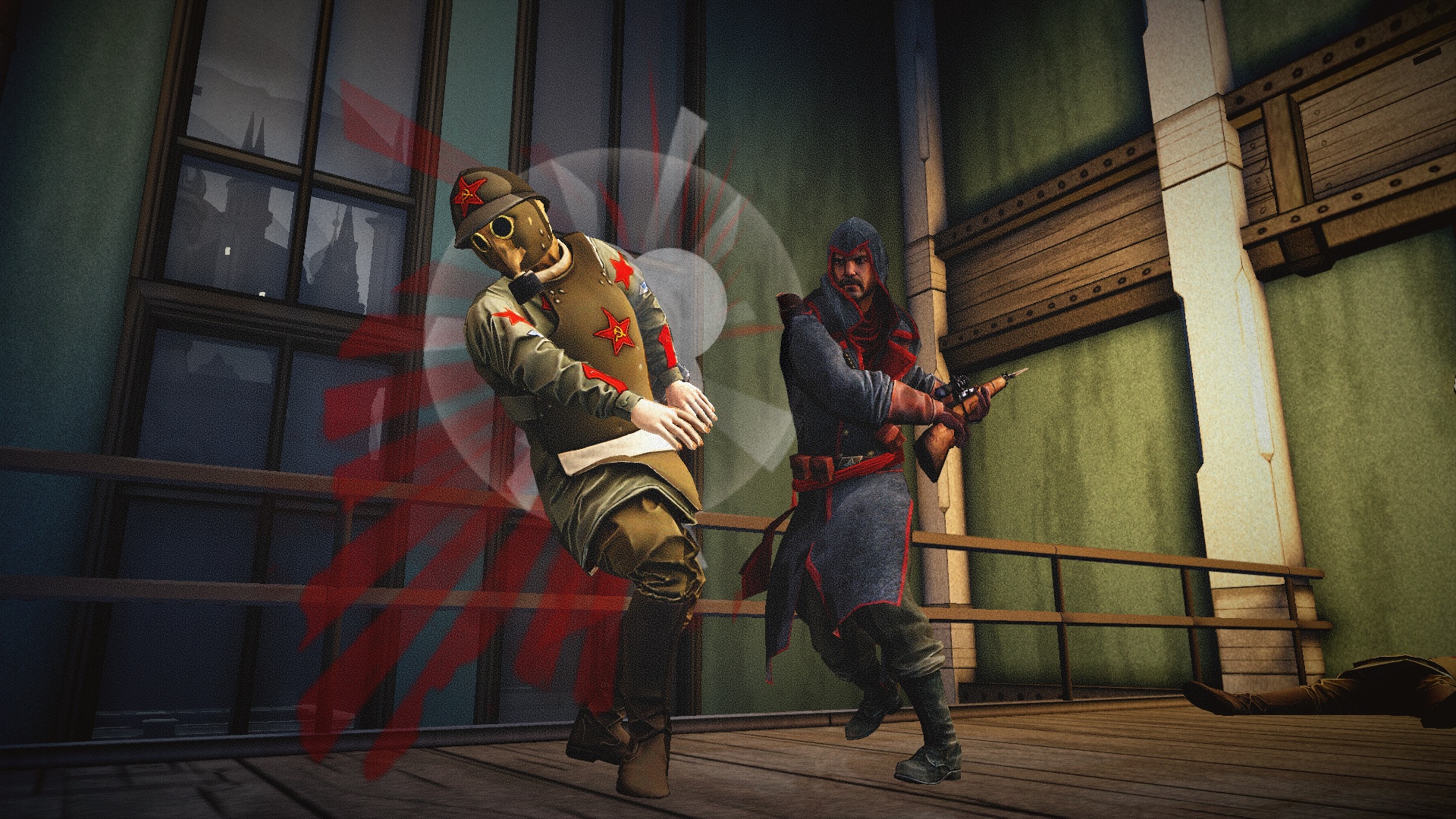
All three of the Assassin’s Creed: Chronicles games are just so…..they’re just so competent. Of course, being a competent video game is no bad thing, but when that’s the nicest thing you can say about it, well, that’s a bit of a problem. There is nothing particularly wrong with any of these games; they all look nice enough, the gameplay is solid and the mechanics are nothing if not sound, but despite being a collection of undoubtedly well-made Assassin’s Creed-lite adventures, none of these games provoke any kind of response from me; I played them, I finished them, and as soon as I put my Vita down, I forgot them.
Perhaps other gamers will make more of a connection, but despite the many positives inherent to the design of each game, none of the titles that make up the Assassin’s Creed: Chronicles Trilogy collection managed to capture my imagination, which is a real shame, as on paper, this sounds like a great way to take the series in a new, more assassination heavy direction.
Much like, Klei Entertainment’s brilliant, Mark of the Ninja, each game in the collection plays out in the same 2.5D art style, and beyond Ubisoft opting for a much more realistic aesthetic and tone, these games share a great deal in common with Mark of the Ninja’s much loved design. Sadly, while the mechanics are indeed very similar and the gameplay immediately familiar, Chronicles lacks the charm and finesse that made Klei Entertainment’s take on shadowy assassination quite so special.
I’m aware that this is all sounding rather negative, but that’s only because Chronicles could, and really should have been a fantastic selection of side scrolling stealth hits, but instead, for one reason or another, we have to settle for what is a decent but ultimately underwhelming collection that is less than the sum of its individual parts.
In fairness though, those parts, they all work, and if you can look past the somewhat forgettable visuals and the relatively uninspired nature of the gameplay, you are left with three enjoyable adventures that expand on the Assassin’s Creed universe while also managing to tell their own unique, and largely self-contained stories.
Of the three games, Assassin’s Creed China, the first game in the series, is arguably the weakest of the bunch. Lacking the loot mechanic that was introduced for the Assassin’s Creed Russia and Assassin’s Creed India themed releases, it nonetheless plays in a very similar manner as its slightly superior successors.
Despite the lack of a loot mechanic, China is home to the same fundamental gameplay that makes the collection consistent across all three games while also remaining true to the core gameplay that has always driven the Assassin’s Creed series. It might be played out on a 2D plain, but the fundamental abilities of the mainline 3D releases have all made the transition with relative ease.
Whether it be hiding in the shadows, slaying unsuspecting enemies, taking a more direct approach to combat or making use of an array of useful gadgets, it’s surprising just how familiar these largely 2D experiences will feel to anyone with any experience of Assassin’s Creed’s traditionally 3D adventures.
The games are certainly more arcade oriented, and the emphasis on action over storytelling, relatively small stages and score-based challenges and do make them a very good fit for the handheld nature of the Vita. These aren’t the kind of games that you’ll necessarily go back to again and again, but the gameplay loop does a good job of encouraging stealthy kills and clean runs while the relative difficulty of more traditional combat certainly makes moving through the shadows the safer option of the two.
Don’t get me wrong, taking down a single enemy with your sword isn’t all that difficult, and thanks to its simplistic but enjoyable mechanics, more aggressive gameplay can prove a great deal of fun, but get surrounded by enemies, and things can quickly get out of hand. Running into battle headfirst certainly isn’t advisable, but your skills with the sword do at least provide the opportunity to fight your away out of trouble if things happen to go decidedly tits up.
Still, despite the solid combat, all three games are undoubtedly at their best when approached like a true assassin. The cover system works well, the gadgets are useful and the stages, despite being somewhat bland, are nonetheless well designed and crafted carefully around your characters abilities and limitations.
All three games have their moments and it’s interesting to see the Assassin’s Creed universe expanded to an array of eclectic and historically interesting geographic locations. None add a great deal to the overarching lore of the series, but each feel at home under the Assassin’s Creed banner with all three managing to spin a decent yarn within the confines of their settings and largely gameplay driven experiences.
While disappointingly forgettable and undeniably safe, the Assassin’s Creed: Chronicles Trilogy collection is a nonetheless solid selection of more action oriented and small-scale stealth adventures. No single element of its design or storytelling is likely to live long in the memory, but for as long as it lasts, these games represent a decent spin-off for the series and chance for Ubisoft to expand its lore without getting caught up in the kind of detail that has weighed down many of the more recent entries in the mainline series. It’s a shame that Ubisoft didn’t do a little more to differentiate each game in the collection, but for fans of Assassin’s Creed, there is plenty of content here to keep you busy for quite some time, and above all else, it’s always nice to see a little Western support for the much-loved but often overlooked, Vita.

REVIEW CODE: A complimentary Sony Playstation Vita code was provided to Bonus Stage for this review. Please send all review code enquiries to press@4gn.co.uk.
Subscribe to our mailing list
Get the latest game reviews, news, features, and more straight to your inbox
Thank you for subscribing to Bonus Stage.
Something went wrong.
-
Gameplay - /10
0/10
-
Graphics - /10
0/10
-
Sound - /10
0/10
-
Replay Value - /10
0/10







